
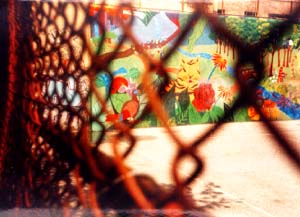 What does this photo tell you about how children
experience nature in New York city?
What does this photo tell you about how children
experience nature in New York city?
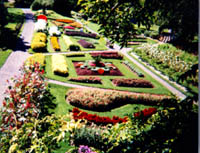
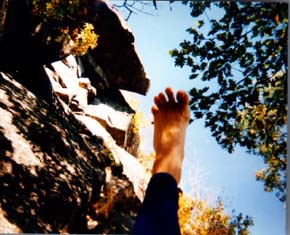
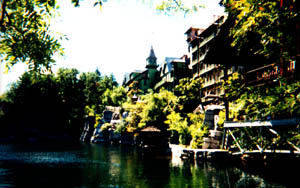

"The body repeats the landscape. They are the source of each other and create each other. We were marked by the seasonal body of earth, by the terrible migrations of people, by the swift turn of century verging on change never before experienced on this greening planet."
--Meridel Le Sueur
Student webfolios facilitated by computer guru Michael Harkins:
Click here to visit ANDREW BAKSH's horticultural therapy project
Click here
to enter the Boolean circle of the Language group investigating how environment
affects communication...
Click here
to enter the Boolean circle of the Socioeconomic group investigating how environment
affects social and economic power struggles among humans...
Click here
to enter the Boolean circle of the Health/Disease group investigating how environment
affects mental, physical and/or spiritual health or disease...
In this inter-, cross-, and transdisciplinary writing course we will explore these themes and more as we develop research strategies, read fascinating books and articles, experiment with web design and improve our expository and creative writing skills. Students are encouraged to filter the material through their interests, life experience and academic major. For example, literature majors can analyse nature poetry, American essayists and novelists; philosophy majors can explore the dilemmas presented by the new ecological philosophers, comparing them to classical philosophy; health science majors can contrast natural (herbs, nutrition, exercise, meditation etc.) versus synthetic (pharmaceutical) or technological therapeutic modalities or investigate how pollution, as far as back as Ancient Rome has caused disease and spread infections; media studies and sociology majors can analyse how nature is presented to specific cultures; and business majors can explore the vitriolic debate between capitalists and environmentalists about the future of the earth.
Each section will be divided into three groups, COMMUNICATION, SOCIO-ECONOMICS,
AND HEALTH/DISEASE, according to interests, experience and college major. Each
group will decide upon several essays, articles, poems or stories to present
to the class (the week before presentation is due) for analysis and discussion.
Each group webfolio site will consist of:
CONCEPTUAL DILEMMAS: Using Aristotelian and Boolean logic, each of the three
groups will conduct an online discussion of how the environment affects communication
in the form of linear and non-linear language, how the environment contributes
to the disease and spiritual, mental and physical health of humans, or how the
environment triggers the social and economic power struggles among humans.
MULTIMEDIA PRESENTATION: Each group will design a multimedia presentation on their web page using graphics, charts, tables, creative writing, photography and/or Shockwave.
SPECIFIC RESEARCH PROPOSALS: Each group will submit at least 10 potential research projects with hypotheses, appropriate links to other research sites online, specific timespace for experimental studies or texts for analysis or concepts for theoretical discussion,isolating problems and analysing kinds of evidence that could be used in solutions.
SURPRISES: The above categories are just suggestions. Creativity is accepting
the unpredictable so surprise yourself, each
other and the world with dazzling projects.

Photo credit: Murray Schechter et al.
Objectives are to improve writing and oral communication in meatspace,
deepspace and cyberspace, develop research strategies, work with the content
of a multidisciplinary theme course, and explore mindbody conditioning through
Keefer's Brain Gym, training speed, focus, flexibility, coordination, strength
training, endurance, balance and posture. Do not be intimidated by speed assignments;
there will be times for very slow, thorough, careful reading, Zen-like meditation
to develop theta waves for creativity and times when "less is more." Professor
Keefer is not a "tornado," but rather a mindbody trainer who wants her students
to be as good at high impact, high intensity aerobics and weight lifting as
yoga and swimming. The brain works in thousands of ways and traditional/conventional
education only develops a few of them, which is one reason why we rarely use
more than 10% of our brain. Hopefully college education will cut up a few more
valleys, ridges and mountains in the cerebral cortex.
Jan. 24: Diagnostic (speed and focus) analysing several of the shorter argumentative
essays on the fate of America's national parks. Creative writing assignment:
free associate on natural objects, including a wigwam made by a Canadian eskimo.Read
all essays in the packet for next week more thoroughly and begin reading The
Spell of the Sensuous. Write a 2-3 page first impression analysis of Abram's
book, discussing his thesis. Brainstorm ideas for your final project. Submit
your first creative entry for the webfolio on the Humans and Nature theme.
Jan.31: In-class writing (weight lifting) on a theoretical chapter from A
Green History of the World. Discussion of last week's assignment and review
of the structure of an argumentative essay including logical fallacies, thesis
development and control, use of evidence. In-class writing on possible topics
for final, expository, argumentative research paper. Introduction to Keefer's
multidisciplinary approach including Boolean, Aristotelian and fuzzy logic,
homospatial and homotemporal structuring, and the Keefer Brain Gym to oxygenate,
model and scaffold Cyberspace, Meatspace and Deep Space. Last half of class
in computer lab, looking at web site and surfing the net. For next week, finish
The Spell of the Sensuous, write another paper on it with at least 2
other documented sources. Continue brainstorming using the Green essays and
anything else you want. Submit webfolio assignment.
Feb. 7: In-class writing on the following Indian song (focus):
Division of class into 3 small groups for discussion and planning of extended,
specialized bibliographies as well as a few articles for the class to read and
the group webfolio. Finish The Spell of the Sensuous and the two papers.
Morning section will read Heart of Darkness but afternoon section will
read White Noise for expository 2 page paper. Webfolio assignment and
group brainstorming are also due for next week as well as personal essay to
find the "I" in your work.
Feb.14: In class writing on different styles of rhetoric, logic and mind-mapping.
Lecture on Cyberspace, Meatspace and Deepspace as they relate to Aristotelian
and Boolean logic as well as the unconscious world of Freud, Jung and homospatial/homotemporal
thinking. Small groups work on conceptual dilemmas. For next week, each group
must submit an html version of their conceptual dilemmas for website. Read A
Natural History of the Senses and let it inspire your webfolio assignment.
Feb. 21: In-class reading and testing on a health science quiz on a general
topic that everyone can understand such as stress reduction. Lecture on APA
format and how the style and rhetoric differ from MLA. Discussion of conceptual
dilemmas, possible research proposals and the respective methodologies and style
manuals. For next week submit a group research projects proposal and a group
bibliography in the appropriate style manual in html to be uploaded to your
group site. Morning section will read White Noise, afternoon section
Heart of Darkness. Your 2 page paper should use the reading to focus
on your project. Webfolio assignment of your choice.
Feb. 28: In-class writing. Lecture and discussion on humans and nature in a
cross-cultural context, analysing how proxemics, urban planning, philosophy,
politics, economics all influence how we interact with our environment. Internet
research in the computer lab. Analysis of selected academic articles. Group
planning of multimedia presentations. For next week, work on your contribution
to small group presentations. Finish all reading and writing assignments.
March 7: Small group presentations. Bring tape recorders. Continue analysis
of academic papers and styles. LIBRARY STRATEGIES MEETING on second floor
of the Bobst library in the East or West room at 2:15 p.m. Both sections can
attend for attendance credit and make-ups. Afternoon section will return to
classroom for small group presentations and academic paper analysis.
N.B. From now until the end of the semester, you must bring DISCS every week to upload with your selections of interviews, research proposals and discussions, literary critiques, methodologies, photos, poems, sound/multimedia, graphics. Make sure everything is original and related to your final research project. You MUST PROOFREAD all material by cross-editing with members of your group so that there are no spelling or grammatical errors. You must also submit at least 2 pages of formal expository writing every week as part of your research paper. Each student must e-mail Professor Keefer at least once to discuss problems with webfolio as well as research project. She will continue to be available in meatspace for private conferences at 5:15 but some cybercorrespondence is mandatory.
March 14: Small group presentations. Discussion of projects and academic papers. Consultation with a computer shaman.
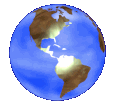
March 21: Hike, bike, meditate, vegetate and/or ski in your favorite nature
haunt anywhere in this beautiful world. Do anthropological research in Ecuador,
Arizona and/or the South Bronx!
March 28: Discs and 2-3 pages of expository writing on project due. In-class
writing and workshop to collect creative material and graphics for the net and
isolate and develop thesis for the final paper. Find your own path in Meatspace,
Deep Space and Cyberspace. Work very hard on your individual project. Continue
webfolio work, write a rough draft even if it's just several pages, and prepare
an outline and 3 page bibliography. Afternoon section in
computer lab.
April 4: Discs, Outlines and 3 page bibliography due. Individual conferences
in computer lab.
April 11: Cyberperformance rehearsal. Bring tape recorders. Oral presentations.
(Can include audiovisual aids)
April 18: Webfolios should all be uploaded. Cyberperformance rehearsal. Bring
tape recorders. Oral presentations. All rough drafts due.
April 25: Cross-editing of final papers and dress rehearsal of Cyberperformance.
Bring at least 5 copies. Corrected papers on disc must be uploaded before Friday.
If you have problems, come to Innovation center Friday afternoon, May 1 to see
Professor Keefer.
 May 2: CYBERPERFORMANCE!!
We will have the room all day but the official performance is 10 to 11 a.m.
Combine webfolio, group and oral presentations and sensory meatspace experiences
in an exciting cyberperformance on the big screen in the privacy of the multimedia
lab, rm 313 of the Warren Weaver building. Bring friends, family and food. Normal
class times.
May 2: CYBERPERFORMANCE!!
We will have the room all day but the official performance is 10 to 11 a.m.
Combine webfolio, group and oral presentations and sensory meatspace experiences
in an exciting cyberperformance on the big screen in the privacy of the multimedia
lab, rm 313 of the Warren Weaver building. Bring friends, family and food. Normal
class times.
May 9: Final meatspace draft of final papers due. Bring a self-evaluation, including
the grade you think you deserve and why. Course evaluations. Come to class on
time in case you are dismissed early.
Click here
for a discussion of Green philosophy.
Click here to
look at required and optional readings, many complete texts included.
Click here to return to home
page